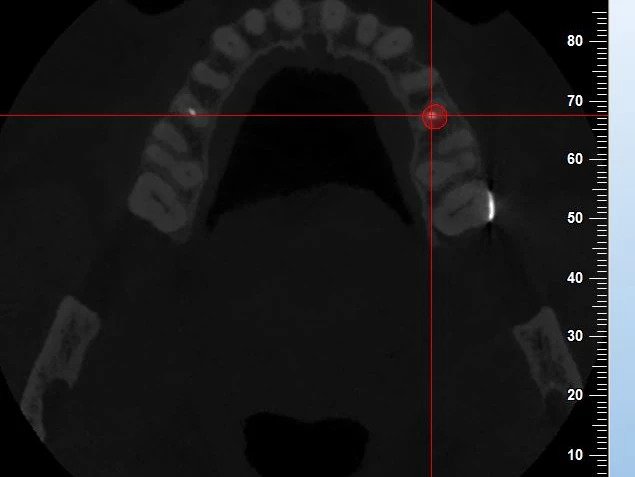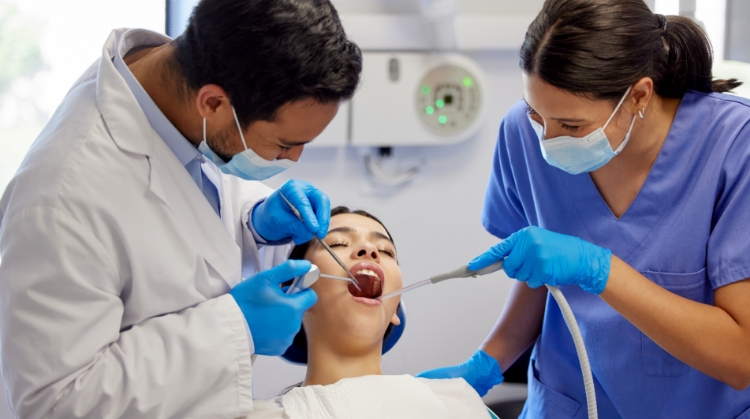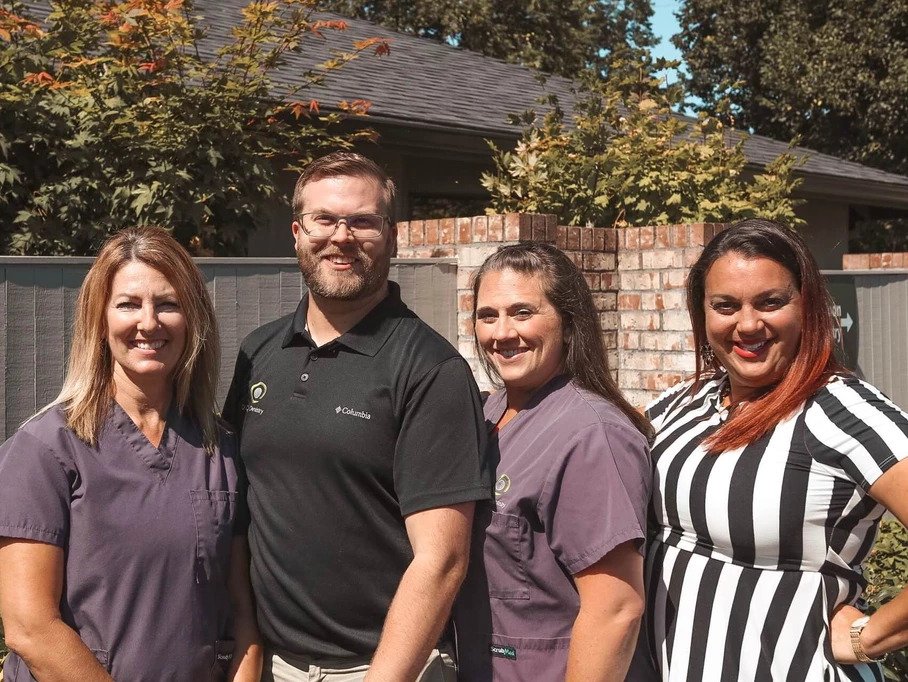Here’s a list of the top 10 questions that I get from patients as a family dentist in Portland, Oregon. Are any of these questions that you have or have had?
10. Why does my (or my partner’s) breath smell bad?
a: Most instances of chronic bad breath or halitosis can attributed to a build-up of certain bacteria and/or food matter in between the teeth, on your tongue etc. Some people also have tonsiliths (the little white things that can build up in the back of your throat). These can be quite common and hard to control. Diet can also play a role, with more pungent foods causing bad breath because they are eaten commonly. My best advice is to brush and floss at least twice daily, use a minty mouth rinse and avoid foods that you know will cause bad breath. Brushing your tongue or using a tongue scraper can be an easy way to control bad breath also. For those with tonsil stones, gargling with mouthwash or salt water after meals can help.
9. Why doesn’t insurance cover this procedure?
a: First of all, let’s get real about dental “insurance”. Most carriers do not structure the dental side like medical insurance. Dental “insurance” really is more like a discount plan. Insurances doggedly negotiate reduced fees in return for providers to be credentialed as “in network” to get access to patients. Most patients have an annual maximum of $1000-2000, with a small deductable and then base what percentage they will cover on the severity or difficulty of the procedure. An example would be a broken tooth that needs a crown. Let’s say the total procedure cost was $1000. Insurance will pay for 50% of it and you have a $100 deductable. So your portion would be $600 and you would have $400 in coverage left for the year if your insurance has a $1000 yearly maximum. In addition, you have to be careful about waiting or replacement periods, certain procedures can be exempt or noncovered if the insurance company specifies in your member handbook, etc. Complicated enough for you yet?!
8. My teeth are sensitive to hot or cold. What can I do to help?
a: My biggest advice is to use a toothpaste that contains BOTH of the common desensitizing agents used in sensitivity toothpastes: Potassium Nitrate and either Stannous Fluoride or Sodium Fluoride. I also recommend avoiding whitening toothpastes, lots of acidic food and brushing too often or brushing too hard.
7. How come dental work is so expensive?
a: As with anything in healthcare, the majority of the money that comes in to the office from patients or insurance payments goes to paying overhead. Dentistry especially caries a very high overhead due to the cost of specialized equipment, lots of disposable materials, insurance, taxes, advertising, rent or mortgage payments, staff salaries and benefits etc etc. So when all this is paid for the little nugget left over is what is actually business profit. Then calculate insurance write-offs, uncollectable accounts, unexpected maintenance costs, we cut into those profits even more. So on average in America, for every $100 you pay for dental care, only about 25% or less even gets to the dentist. Think about that the next time you pay a plumber $200 an hour!
6. What is the best tooth brush to use?
a: Most often my answer is “whatever one you like the best.” My logic is that most modern tooth brushes are fairly equal and effective. Obviously electric toothbrushes can be more effective, but I truly stress technique and time spent more than anything. My personal preference is the Sonicare DiamondClean.
5. I read that flossing doesn’t really do any good. Is that true?
a: Ugh…one poorly done study has created a huge controversy in our profession. My true feeling is that flossing may be more important to the prevention of cavities and gum disease than brushing. This needs to be studied in a more controlled trial for multiple years of follow up to be truly accurate, but I can tell you that you most definitely should be flossing regularly. The water and air flossers are not a substitute either. They can a good addition to your oral care regimen however.
4. Why did you become a dentist?
a: That’s a story for another blog post, but I will say the root of it was a desire to work in healthcare but not in a hospital setting. Being a business owner was also a dream of mine. I am good working with my hands, I liked art and dentistry applies both of those every day.
3. How long does a crown last?
a: Always a tough question. If you go by most insurance companies’ definition based on replacement periods it would be between 5-10 years. I think there is more that goes into this question and it has a lot to do with how healthy your tooth was prior to the crown, how much damage was repaired, how many times it has been repaired in the past, and always how well you care for your teeth after the crown is placed. I expect most well done crowns, on relatively healthy teeth, with good patient home care to last 15-20+ years. I have seen some crowns last 50 or more years, and some that only last a year unfortunately.
2. I am interested in whitening my teeth. What are my options?
a: I highly recommend a set of custom whitening trays and gel whitening for at home use. We like the Phillips “Zoom” line of products for at home use. If you use prefab trays or over the counter products, they will work but will take a lot longer to see results and you will end up spending just as much out of pocket than you do for professional products. If you want immediate results in-office treatments are really effective and come with take home trays to continue to use afterwards.
1. Is it going to hurt?!
a: My philosophy is to create as safe of an environment as possible for each procedure, both for the patients and myself and staff members. This means controlling the operative environment and making patients comfortable. We use local anesthetics when needed, and to a level that is safe and ensures each patient is not going to be in any pain during the procedure. Part of being a family dentist is to communicate effectively to each patient and being honest about pain control and expectations. I will be frank, a lot of what I do is not particularly comfortable, and can be invasive and “in your face” (pardon the pun). My job is to make everything as smooth and comfortable as possible and prepare patients for pre and post operative care so there are no surprises. We also use several methods of mild sedation for some patients who need extra help with anxiety. The biggest compliment I receive is patient satisfaction. The words “you give good shots” gives us all the fuzzies!
If you have any questions not on this list give us a call at On Q Dentistry at: 503-788-1008



